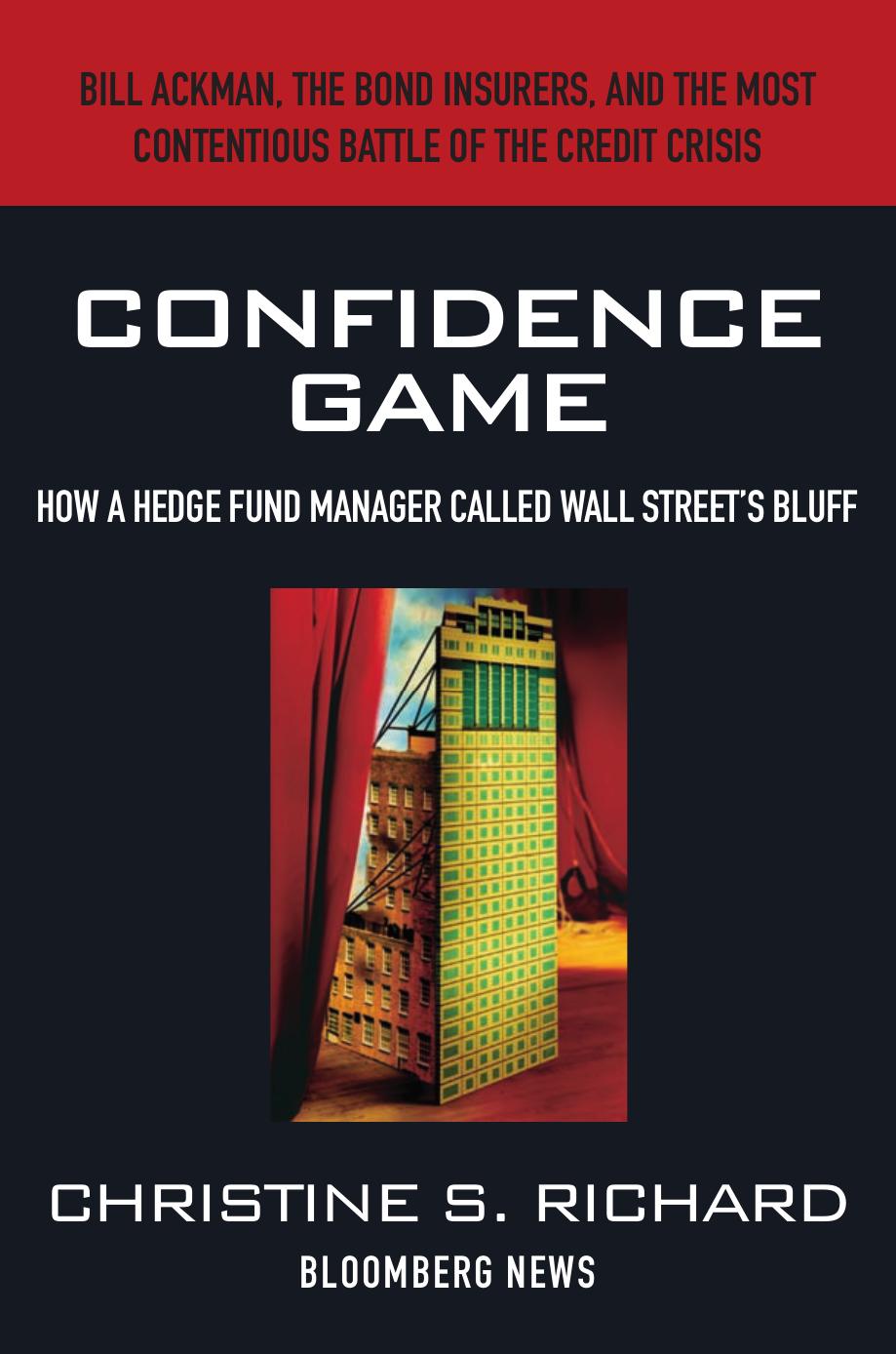Confidence Game: How a Hedge Fund Manager Called Wall Street's Bluff by Christine S. Richard

Author:Christine S. Richard
Language: eng
Format: azw3, epub, pdf
Tags: History, Corporate & Business History, 2008-2009, N.Y.), Credit Ratings, Finance, 21st Century, Global Financial Crisis, N.Y.) - 21st Century, State & Local, Municipal Bond Insurance, Securities Industry, United States, Municipal Bond Insurance - History - 21st Century, Wall Street (New York, Business & Economics, Economic History, Investments & Securities, Securities Industry - Credit Ratings - 21st Century, General, Insurance, Casualty
ISBN: 9780470648278
Publisher: John Wiley & Sons
Published: 2010-04-26T00:00:00+00:00
AS MBIA PUT one crisis behind it, storm clouds were forming over the U.S. subprime mortgage market.
The subprime mortgage market had become an increasingly important part of the U.S. mortgage market. In the mid-1990s, only 5 percent of mortgages were considered subprime; in early 2007, that number grew to 20 percent. Outstanding subprime mortgages rose from $35 billion in the mid-1990s to $625 billion in 2005 and $1.7 trillion by 2007.
Most of these mortgages had been used to back trillions of dollars of supposed safe securities. A research report making the rounds in early 2007 reminded investors that it had yet to be seen whether the securitization market was sufficiently regulated, transparent, and stable to entrust with the funding of the U.S. mortgage markets. Josh Rosner, a consultant, and Joe Mason, a finance professor at Louisiana State University, warned that lenders had become far more aggressive in recent years, making it very difficult to predict default rates and losses on mortgages. If those losses exceeded expectations, then the deterioration in mortgage-backed securities could be dramatic.
“When mortgage pools do not perform . . . the outcome is final and dramatic,” Rosner and Mason wrote.
To complicate matters, many of these subprime mortgage-backed securities had been purchased by collateralized-debt obligation (CDO), shrouding the risk of the underlying mortgages in one more layer. “Risk that is more difficult to see, by virtue of complexity, is risk just the same,” Rosner and Mason warned.
These rumblings did little to dampen spirits as more than 6,000 people descended on the Venetian Hotel in Las Vegas for the annual American Securitization Forum conference in the winter of 2007. Participants were guardedly optimistic that the concerns about the subprime mortgage market would blow over. Between gambling, golfing outings, and dealmaking, panelists batted around a number of troubling issues.
Mark Adelson, a structured finance analyst with Nomura Securities, took notes during the conference and shared them in a research report. “One panelist feels strongly that BBB subprime ABS [asset-backed securities] are lousy investments because they exhibit cliff risk,” Adelson’s notes rather ominously read.
Adelson labeled one section of his notes “Scary Topics.” It included this idea: “A slowdown in housing can create a feedback loop in the labor market as construction, mortgage lending, and real estate industries contract.” And then there was this observation: “Borrowers may start to behave differently than they have in the past in deciding whether or not to default on their loans.”
Still, the mood was upbeat. One panelist suggested that the structured finance market was on track to turn out an astounding $1 trillion of CDOs during 2007. Countrywide Financial Corporation, one of the largest providers of credit to the housing market, sponsored a cocktail party networking event. Citigroup executives held court in the Tao bar. Tonight Show host Jay Leno headlined the group’s annual dinner.
“Looking toward the horizon, one sees the telltale signs of a possible storm,” Adelson concluded in his notes. “It could blow over and amount to nothing. Or it could develop into a tornado.”
One
Download
Confidence Game: How a Hedge Fund Manager Called Wall Street's Bluff by Christine S. Richard.epub
Confidence Game: How a Hedge Fund Manager Called Wall Street's Bluff by Christine S. Richard.pdf
This site does not store any files on its server. We only index and link to content provided by other sites. Please contact the content providers to delete copyright contents if any and email us, we'll remove relevant links or contents immediately.
International Integration of the Brazilian Economy by Elias C. Grivoyannis(110168)
The Radium Girls by Kate Moore(12018)
Turbulence by E. J. Noyes(8040)
Nudge - Improving Decisions about Health, Wealth, and Happiness by Thaler Sunstein(7693)
The Black Swan by Nassim Nicholas Taleb(7109)
Rich Dad Poor Dad by Robert T. Kiyosaki(6612)
Pioneering Portfolio Management by David F. Swensen(6289)
Man-made Catastrophes and Risk Information Concealment by Dmitry Chernov & Didier Sornette(6007)
Zero to One by Peter Thiel(5786)
Secrecy World by Jake Bernstein(4741)
Millionaire: The Philanderer, Gambler, and Duelist Who Invented Modern Finance by Janet Gleeson(4465)
The Age of Surveillance Capitalism by Shoshana Zuboff(4276)
Skin in the Game by Nassim Nicholas Taleb(4239)
The Money Culture by Michael Lewis(4198)
Bullshit Jobs by David Graeber(4179)
Skin in the Game: Hidden Asymmetries in Daily Life by Nassim Nicholas Taleb(3991)
The Dhandho Investor by Mohnish Pabrai(3759)
The Wisdom of Finance by Mihir Desai(3735)
Blockchain Basics by Daniel Drescher(3574)
